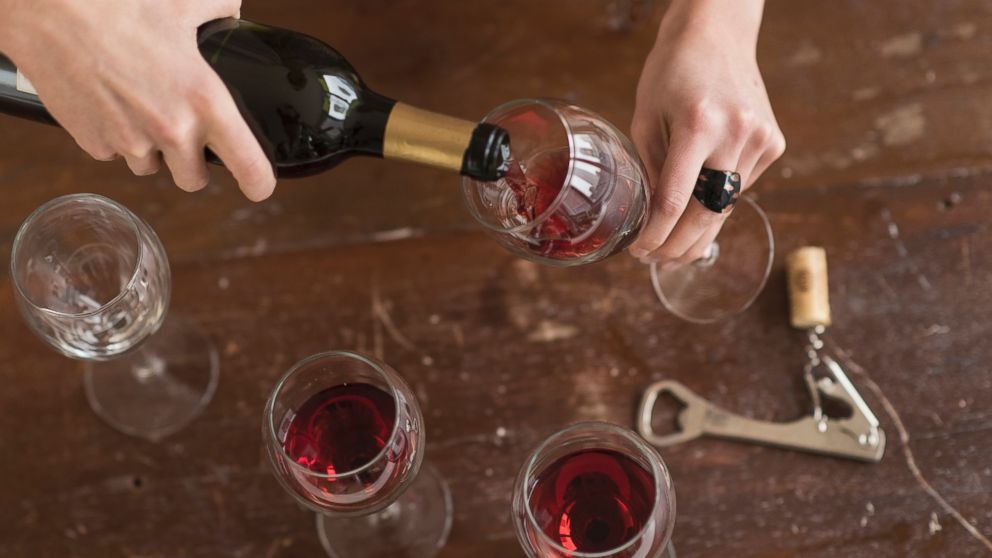Study Breaks Down 'Types' of Drinkers from 'Ernest Hemingway' to 'Mary Poppins'
Study examined the behavior of college students after a few drinks.

— -- Can a few too many cocktails turn you into “Mr. Hyde”? Or maybe "Ernest Hemingway"?
Researchers at the University of Missouri-Columbia are aiming to find out by examining the personality traits of college students after they’ve had a few drinks.
A new study, published in the Addiction, Research & Theory Journal, examined the habits of college students after a few drinks to see if it’s possible to classify different “types” of drinkers. The small study examined 374 college students who all reported their behavior both before and after a few drinks.
“Some people are known to get angry and violent, careless and irresponsible, or weepy and inconsolable when drinking, and that is often what earns them the label of being a ‘problem drinker,’” read the study. “However, until now, there has been no empirical investigation into the unique types of personality-like changes that people undergo when drinking.”
Researchers led by Rachel Winograd, a Ph.D student in clinical psychology at the University of Missouri-Columbia, collected self-reported data on the students about their behaviors after a few drinks. They determined the students could be broken down into four main types.
“A ‘drunk personality’ in general is an assumption that people change when they’re drunk,” explained Winograd, who cited how people talk about “good drunks or bad drunks.”
However rather than just saying “good or bad” the researchers wanted to put a use scientific framework when talking about types of “drunk” personalities, so they focused on each student’s agreeableness, conscientiousness, intellect and extraversion after drinking.
After using specific models on the data collected the researchers came up with four main types: the “Ernest Hemingway,” who shows minimal signs of intoxication even after a binge, a “Mary Poppins” for drinkers who are already agreeable and end up not decreasing on other factors, a “Mr. Hyde” for those who were less conscientious and agreeable and used less intellect, and the “Nutty Professor” for people who reported they were introverted while sober and very extroverted when drunk.
In the study, a large proportion, 153 students, reported to be Hemingways while the smallest group were the Mary Poppins with just 54.
Winograd acknowledged much more study needs to be done before these observations could be used by clinicians, especially since the subjects studied were all college students similar in age, race and location. However she said that the results are a first step.
“I think what is a more immediate clinical utility of this research is putting in a language how we are when we drunk,” explained Winograd, who pointed out that clinicians may be able to someday point out to a person that as a “Mr. Hyde” they have become a less conscientious, agreeable or intellectual person when drinking. “It gives us a language we can use.”
According to the National Institute of Health four out of five college students report drinking and half report binge drinking. While the NIH doesn't report on how alcohol changes student's personalities, they report it has far-reaching effects with 25 percent of students reporting that alcohol has consequences their academic career and that 150,000 students develop an alcohol-related health problem.
Approximately 1.2 to 1.5 percent of students have indicated that drinking or drug use lead to a suicide attempt in the past year.




